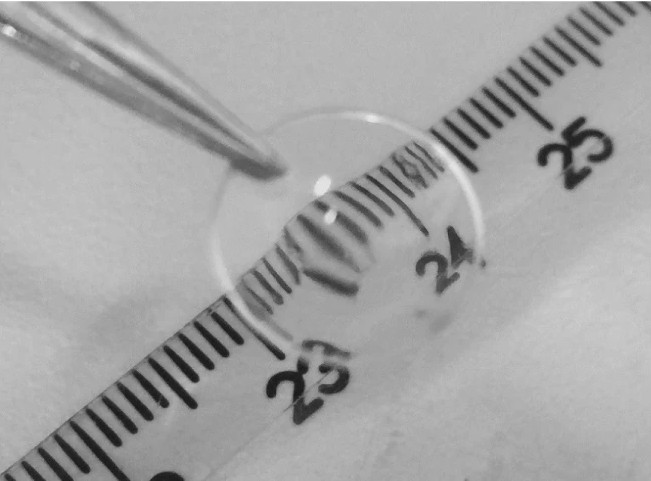Lifestyle
Blind No More: Incredible Implants Give Perfect Vision to Those in Need


A team of researchers and entrepreneurs has made a groundbreaking development by creating an implant using collagen protein from pig’s skin, which can restore vision to people suffering from corneal disease. The implant has restored 20/20 vision to 20 people who were either blind or about to lose their sight. The study, jointly led by researchers at Linköping University (LiU) and LinkoCare Life Sciences AB, was recently published in Nature Biotechnology.
The cornea is the outermost transparent layer of the eye, and an estimated 12.7 million people worldwide are blind due to damage or disease in this layer. Currently, the only way to regain vision in these cases is by receiving a transplanted cornea from a human donor. Unfortunately, access to donated corneas is limited, especially in low and middle-income countries.
The newly developed bioengineered implant can be mass-produced and stored for up to two years, making it more accessible to people with vision problems worldwide. It is made of highly purified collagen protein from pig skin, a byproduct of the food industry, making it easy to access and economically advantageous.
The implant is constructed by stabilizing the loose collagen molecules, forming a robust and transparent material that can withstand handling and implantation in the eye. Unlike donated corneas, which must be used within two weeks, the bioengineered corneas can be stored for up to two years before use.
The researchers have also developed a minimally invasive surgical method for treating keratoconus, a disease where the cornea becomes so thin that it can lead to blindness. With the new surgical method, a small incision is made through which the implant is inserted into the existing cornea, and no stitches are needed. The incision can be made with high precision, thanks to an advanced laser, but can also be done by hand with simple surgical instruments.
The pilot clinical study’s primary purpose was to investigate the implant’s safety, but the researchers were surprised by the positive results. The implant not only restored the cornea’s thickness and curvature to normal but also significantly improved the participants’ sight. Before the operation, 14 of the 20 participants were blind, but after two years, none of them were blind anymore.
A larger clinical study followed by market approval by regulatory authorities is needed before the implant can be used in healthcare. The researchers also want to study whether the technology can be used to treat more eye diseases and whether the implant can be adapted to the individual for even greater efficacy.
This study’s groundbreaking results have the potential to revolutionize the way we treat corneal disease, offering a more accessible and effective solution to those in need. With this new implant, people suffering from the corneal disease can be given the gift of sight.
































